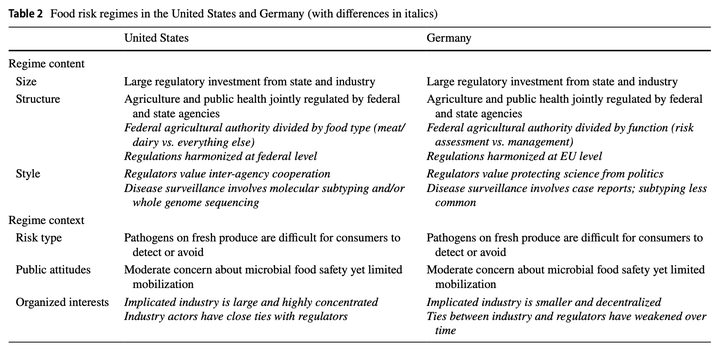Policy Responses to Foodborne Disease Outbreaks in the United States and Germany
 Table 2: Food risk regimes in the United States and Germany
Table 2: Food risk regimes in the United States and Germany
Abstract
This paper explores differences in national responses to foodborne disease outbreaks, addressing both the sources of policy divergence and their implications for public health and coordinated emergency response. It presents findings from a comparative study of two multi-state E. coli outbreaks, one in the United States (2006) and one in Germany (2011), demonstrating important differences in how risk managers understood and responded to each nation’s first major outbreak associated with fresh produce. Drawing on a qualitative analysis of 36 semi-structured interviews with key stakeholders and hundreds of archival documents, this paper traces how social constructions of the E. coli risk interacted with organizational dynamics among state and industry actors to produce divergent policy outcomes: the U.S. outbreak was understood primarily as an agricultural problem that led to an industry-led agricultural solution, whereas the German outbreak was understood as a human disease problem that did not result in a substantial policy response once the acute health crisis passed. The paper concludes by discussing how these policy processes generate partial solutions to foodborne contamination that expose modern societies to systemic vulnerabilities.